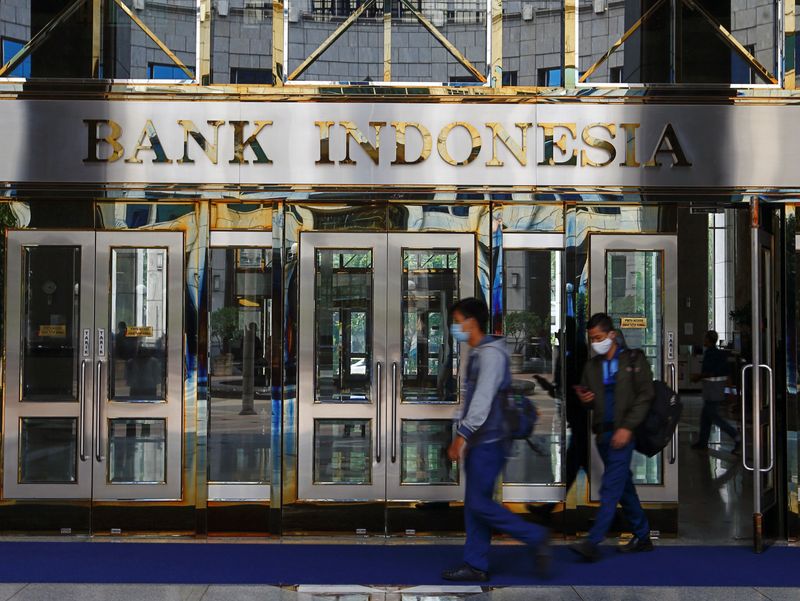By Rae Wee
SINGAPORE (Reuters) - Asian issuance of bonds denominated in local currencies have ballooned to their largest in more than a decade as borrowers turn shy of expensive U.S. dollar debt and tap cheaper, liquid markets at home.
A total of $2.65 trillion has been raised in Asia excluding Japan and Australia via 12,075 local currency bond issues by September, data from Refinitiv showed.
That reflects a roughly 10% increase in proceeds from a year earlier and the highest for the year-to-date period in over a decade.
Of this, 47.2% came from government issuers, at $1.25 trillion across 2,057 issues. This was followed by the financials sector, constituting 31.2%, or $825.78 billion, from 5,419 issuances.
“Local currency markets are more peculiarly insulated from what’s happening on the global front," said Wong Kwok Kuan, managing director and regional head of debt markets at Maybank Investment Banking Group.
The Federal Reserve has hiked interest rates by 300 basis points (bps) since the start of the year, taking the Fed funds target rate above 3%. The latest projections show that rate rising to 4.25%-4.5% by the end of 2022.
That frenetic pace of rate rises makes local currency bonds relatively cheaper to issue than dollar bonds, particularly as the dollar scales multi-year highs and weakens local currencies.
Meanwhile, rate hikes in Asia have generally been more subdued.
Bank Indonesia, for instance, only began hiking in August and has raised rates by a total of 75 bps. The Philippine central bank has increased rates by 225 bps since May and the Bank of Thailand has hiked by 25 bps twice, in August and September.
Andrew Lim, regional head of debt capital markets at Maybank Investment Banking Group, pointed to how the U.S. dollar capital market had also "seen periods where it was shut given the macro volatility", causing corporates to look onshore.
Graphic: Asia bond issuance
https://fingfx.thomsonreuters.com/gfx/mkt/klpykxmgopg/Pasted%20image%201664960084504.png
PALATABLE COST
Indonesian company Mandiri Tunas Finance, which is majority-owned by Bank Mandiri, raised 376.615 billion rupiah ($24.80 million) of 5-year bonds at 6.75% in February. In August 2020, it paid 8.6% on 5-year bonds.
Yields on the 5-year U.S. Treasuries have risen from about 0.4% in December 2020 to about 3.8% currently. Credit bonds are typically priced on spreads over sovereign bonds.
The yield on Asian investment grade corporate dollar bonds is now at 5.8%, up 300 bps this year.
The spurt in local bond issuance has also been spurred by a growing appetite for such bonds, as domestic investors – typically the main buyers – hunt for opportunities to stay invested at home.
“The local currency markets are well supported by domestic institutional investors such as life insurance companies and asset managers, as they have local currency assets and specific mandates to deploy into these markets,” said Edmund Leong, UOB’s head of group investment banking.
Thailand-headquartered Gulf Energy Development Public Company Limited successfully issued debentures totalling 35 billion baht ($940 million) in August, of which 11 billion baht was distributed to high net worth investors, banks, insurance and securities firms.
To be sure, investors say that the volume and amounts raised from issuances this year are not surprising, and reflect steady growth in markets over the past years.
From 2020 to 2021, the total amount raised from local currency bonds issued in Asia, excluding Japan and Australia, increased by nearly 15%, and from 2019 to 2020, proceeds were nearly 30% higher.
Even as rates rise, issuers are expected to continue tapping domestic markets for refinancing of existing debt and other capital requirements.
“I’d say financing costs remain within expectations, palatable," said Leonard Kwan, portfolio manager of T. Rowe Price’s dynamic emerging markets bond strategy.
"For the most part, it would still be cheaper to finance domestically, even at current higher rates, than external markets.”
($1 = 15,185.0000 rupiah)
($1 = 37.2300 baht)
